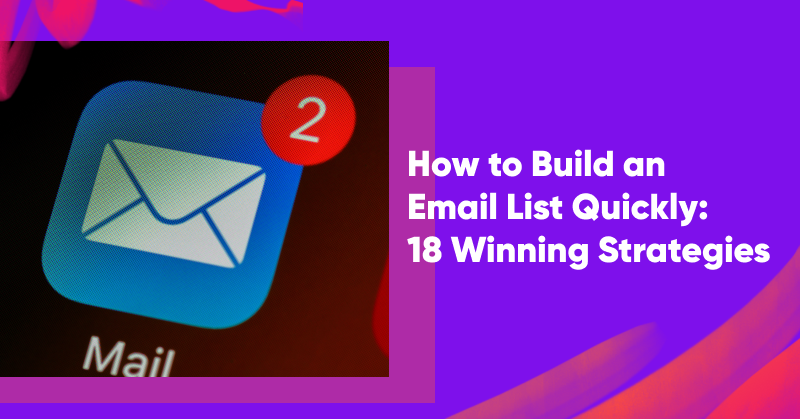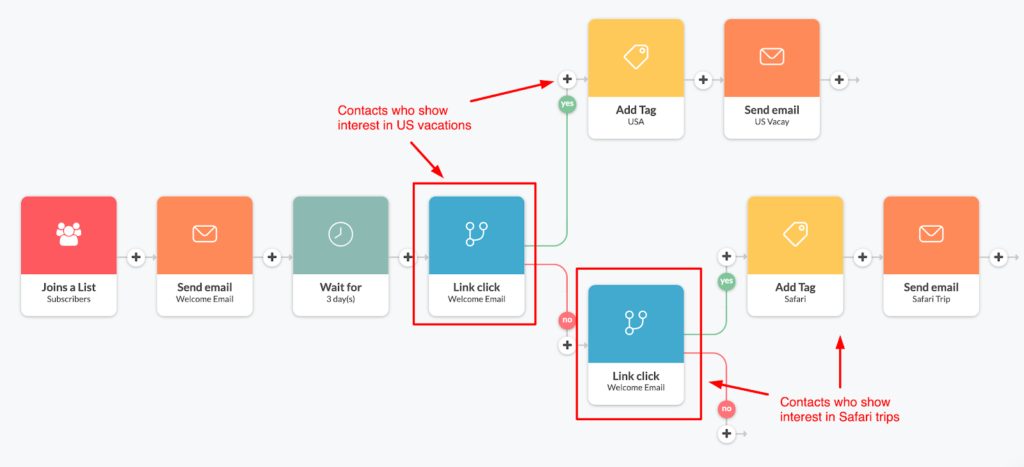Expert Guide To Deciding On A Hematologist Email list
Wiki Article
What Do I Have To Be Thinking About When Purchasing An Cpa Email Database?
Consider these factors when buying the CPA list (Certified Public Accountant). You want to ensure that the list is relevant as well as high-quality and meets legal guidelines. Consider: 1. Data quality and accuracy
Verify that the source of data is correct. Most reliable providers collect their data from reliable sources including directories of professionals, databases. Avoid lists compiled using scraping and other unreliable methods since they may contain outdated or inaccurate data.
Verification: Check that the email address list is recently verified. This decreases bounce rates and makes sure you're getting active, valid emails. You should inquire as to how often the list is updated since CPAs frequently change companies and jobs.
Segmentation: A reliable CPA database will offer the option of segmentation. This includes the location (city or state) and industry-specific specializations (e.g. auditing, taxation, financial planning), years of expertise and the size of the firm. Your marketing campaigns will be more relevant by using targeted targeting based on the factors above.
2. Legal Regulations
Data Privacy Laws Ensure that your email list complies all relevant local laws and regulations, such as California Consumer Privacy Act, General Data Protection Regulation or General Data Protection Regulation. The list must include email addresses that have been obtained legally and in accordance with consent.
CAN-SPAM Act Compliance: For U.S. email campaigns, the list must be in compliance with the CAN-SPAM Act which governs commercial email communication. Included in this is the inclusion of opt-out options, and the use of non-deceptive content or subject lines. Infractions can be punished with fines and other legal issues.
Opt-in Consent: Check that email addresses were obtained via opt-in consent. This means that the users were willing to receive emails from marketing from third party companies. This will increase engagement and reduce spam complaints.
3. Provider Reputation
Check the track record and reputation of the company you choose to work with. Check reviews, case studies, and testimonials to gauge the experiences of previous customers. Established firms with proven record of success are more likely to provide accurate, high-quality data.
Transparency. Providers should be transparent about how their data was collected and how often they update it. If the service provider doesn't provide clear explanations of their method the method used, then it's an indication of red.
Customer Support - If you are looking for help with customization of lists, troubleshooting issues, or compliance rules, then the support of a reliable team is vital. Support that is efficient can cut down time and energy throughout the process of launching your campaign.
4. Cost and ROI
Pricing Models. Different providers have different pricing models. Some charge by contact, whereas others charge the option of a subscription or flat rate. Examine ROI with costs and weigh price against the quality.
Ask about the refund policy. If you find that a significant number of emails are inaccurate or in error, you could be eligible for a full or partial refund. A guarantee will give you piece of mind.
Don't focus on price by itself. If the list isn't high quality, a list with a lower price might look appealing, but it can lead to low engagement rates or high bounce rate. Pay for lists which offer data accuracy and segmentation.
5. Data Usage and ownership
Single-Use and Multiple-Use. Multiple-Use: Determine if you're buying the list to use for a specific time or if you own the data and are able to use it in ongoing campaigns. The cost of single-use databases could be lower, but you will have greater flexibility over the long term if you buy the data.
Shared Lists: Determine if the list is exclusive to you or shared with multiple buyers. Shared Lists: Determine if the email list is exclusive to you or shared with multiple buyers. Lists shared with others can cause audience fatigue, if recipients are bombarded by marketing emails.
6. Data Format and Integration
CRM Compatibility. Be sure that your list is sent in a format that works with the CRM software that you use, or for email marketing like CSV. It allows easy importation and administration of your information.
User-Friendliness: Find out how easily data can be segmented and managed after integration into your system. A well-organized database can help improve the effectiveness of targeting and personalization. efficient.
7. Ethical Aspects
Relevance and the value of content: Because CPAs work hard, it is essential to provide material that is both relevant and useful. Unrelated messages can affect your brand's image or increase complaints about spam.
Avoid Over-Emailing. Be mindful of the frequency with which you email contacts from the list. Unintentional communication can lead to people being removed from your list or spam complaints. Both of these can have a negative impact on your sender’s rep.
We also have a conclusion.
When you purchase a CPA email list, you should consider the quality of the data, legal compliance, and the provider's reputation to ensure your investment is worthwhile. Segmentation and targeting as well as ethical practices will maximize engagement, ROI, as well as the perception of your brand. Have a look at the top cpa email list for blog recommendations.

What Do I Need To Consider When Buying A Oncologist Email List?
When buying an oncologist's email list, you need to think about factors that can ensure that the list is of high-quality legal and tailored to your particular goals in marketing. Here are a few important considerations. Quality of data and accuracy
Source: Check that the source of the email list is reliable, like professional associations or databases that deal with healthcare. Avoid lists from unreliable or unknown sources. They may contain inaccurate and outdated information.
Verification Process. The list service provider has to have a strong verification process that ensures the email addresses provided are accurate, valid and active. The list must be updated regularly and cleaned to remove duplicate, invalid or inaccurate contacts. This will increase deliverability.
Segmentation - A reputable email list for oncologists should contain segments. Being able to filter the list by subspecialties (e.g., pediatric oncology, surgical oncology, hematology-oncology), geographic location, years of experience, or institution allows for more targeted outreach, increasing the likelihood of engagement.
2. Legal Regulations
Data Privacy Regulations – Ensure that your email list is compliant with regulations on data privacy, such as the General Data Protection Regulations in Europe and the California Consumer Privacy Acts of the U.S. The email address should be gathered and processed in a legally-sound manner and in a way that respects the privacy of your data.
CAN-SPAM Act Compliance: For U.S.-based campaigns, ensure that the list complies with the CAN-SPAM Act, which regulates commercial email communications. Include an opt-out option in your emails. Use precise subject lines. Do not mislead recipients. Failure to comply could result in penalties or damage to your reputation.
Opt-In Consent: Check to see if the email addresses on the list were gathered via opt-in consent. Oncologists should have opted-in to receive marketing communications, ensuring compliance with privacy laws and lessening the chance of spam complaints or legal concerns.
3. Provider Reputation
Reputable Provider - It is important to purchase your list from a leader with a good reputation. Check their reviews, testimonials and case studies in order to confirm their credibility and the quality of their data. Established providers have a higher chance of being able to provide accurate and legally-compliant information.
Transparency: Providers must be transparent about the source of their data, how often it's updated and what verification methods used. The lack of transparency could indicate that the information isn't up to standards.
Customer Support: Select an organization that has responsive customer service if you require assistance with the list or queries regarding segmentation, integration or even compliance.
4. Cost and Return on Investment
Pricing Structure: Be sure to comprehend the pricing structure. Does it depend on of the number or contacts or is it dependent on subscriptions, flat fees etc. Take into account how the pricing model aligns with your marketing budget and the anticipated return on investment.
The policy for replacement and refunds: A well-established company will offer a return policy or replacement policy for emails that are invalid or email addresses that are no longer valid. To ensure your safety it is crucial to know the policies prior to purchasing.
Do not just concentrate on price. Even though a cheaper mailing list may be appealing, it can ultimately hurt your campaign if it results in poor engagement or delivery. Be sure that the information is accurate and relevant.
5. Ownership and Usage of Data
If you're unsure, ask if it is a single-use list or if ownership will allow for continuous use. Single-use lists might be less expensive, however if you plan multiple campaigns, owning the list may provide greater flexibility and long-term value.
Exclusive vs. Shared Lists: Determine if the list is exclusive to you or sold to several buyers. Exclusive lists are generally more valuable as they are more likely to decrease the fatigue of your audience. This results in more engaged audience.
6. Data Integration and Format
CRM Compatibility. Ensure that you can import the list easily into your CRM or emailing software. To make it seamless the list should be in a standard format like CSV or Excel.
Simplify segmentation: The list should be simple to manage, segment and manage within your CRM. It is possible to tailor your marketing strategies better if are able to quickly filter by criteria such as oncology subspecialty and geographic location.
7. Ethical Questions
Relevance: Oncologists are highly special fields, and they have hectic schedules. Ensure your message is relevant to their job or interest like medical equipment, continuing education or pharmaceutical advancements. Unrelated emails could result in a negative brand reputation and low engagement.
Avoid spam: Do not send out unsolicited email or large amounts of email. This could result in complaints about spam. Keep your audience interested by sending emails at moderate frequency.
Conclusion
When buying an oncologist's mailing list, pay attention to the accuracy of data, legal conformity, and the credibility of the company. The list must be properly segmented, verified and customized to meet your intended market. These aspects will assist you design an outreach strategy that is efficient and compliant. It will also maximize engagement and yield impressive results. Read the best oncologist email list for blog info.
